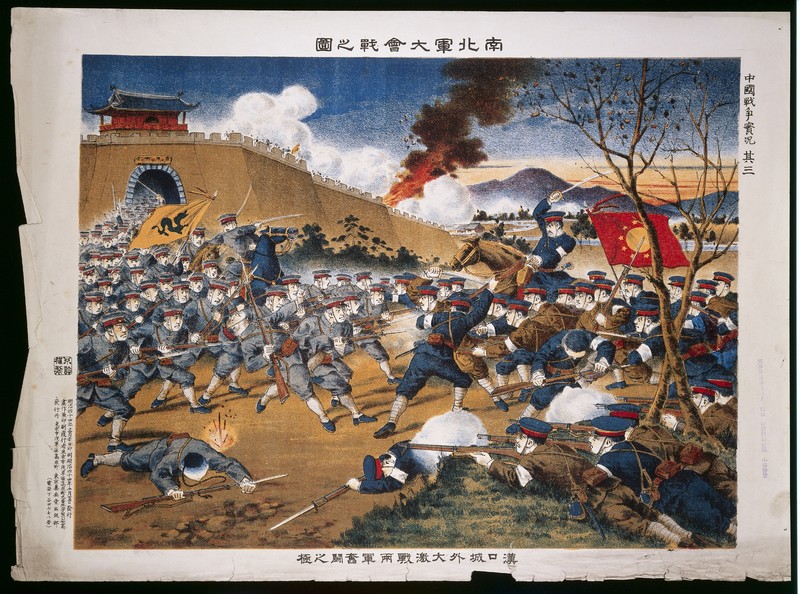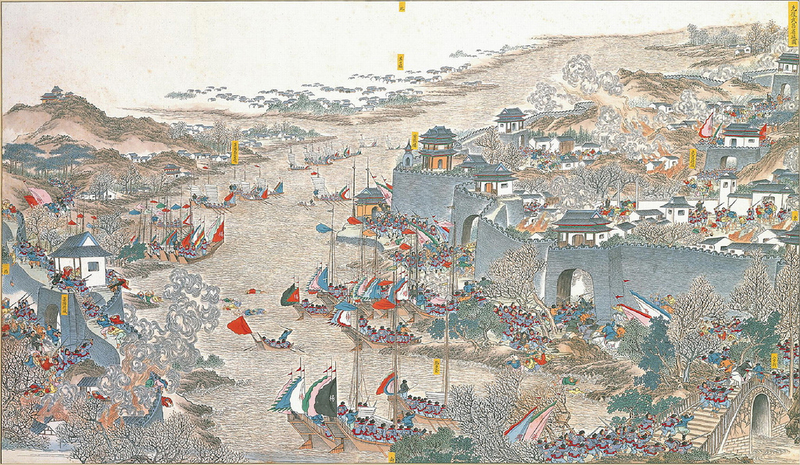Taiping Rebellion
The Taiping Rebellion, or civil war, was a massive uprising fought between 1850 and 1864. The three cities of Wuhan (Hankou, Hanyang, and Wuchang) were the site of intense fighting and were possessed and repossed by both sides many times. In 1852 Taiping troops advanced down the Xiang river. In the Summer of 1852, Governor General Chang Youcai brings troops into Wuchang as a defensible site. Hanyang had a small token contingent of troops and Hankou was left defenseless. In November 1852, Chang Dachun ordered Wuchang's gates locked to refugees from other cities in order to save rations for the upcoming seige. Additionally, nearby market towns were raised and all buildings surrounding the capital within 100 yards were burned in order to create a target zone. Taiping forces numbering about 100,000 took Hanyang on December 23, 1852. On December 27th Hankou is taken and on January 17, 1853 Wuchang is taken. Several thousands civilians are killed during these battles. The Taiping Navy benefited by taking 10,000 watercraft from Wuhan. The fight over Wuhan continued in February 1853 when General Xiang Rong retook the three cities. In the fall of 1853 Taiping forces launched the "Western Expedition" from Nanjing and take Hanyang and Hankou before eventually being dislodged by Anhui Governor General Jiang Zhonglie. In February 1854 Taiping forces once again take the three cities, but in October 1854 they are ousted once again. In the beginning of 1855 Hanyang and Hankou were taken by Taiping forces and on April 3 Wuchang was taken as well. In Midsummer 1855 Qing forces undre Hu Linyi begin an eighteen-month seige which left all three cities in rubble. During this period Hankou, because it was the least defensible, was exchanged multiple times. In addition, Hankou was the site of intense street fighting and was bombaraded by Hu's gunboats. In December 1856 the cities were regained by Qing forces but left as a smoldering heap.
To the residents of Wuhan both the Qing and the Taiping were outsiders who harmed the city. Merchants were especially displeased that Hankou was not defended adequetly despite the city's limits of defensebility. Additionally, to the residents each city had a unique identity but to the two armies Wuhan was likely viewed as a single entity.
For more see, Rowe 1989.

